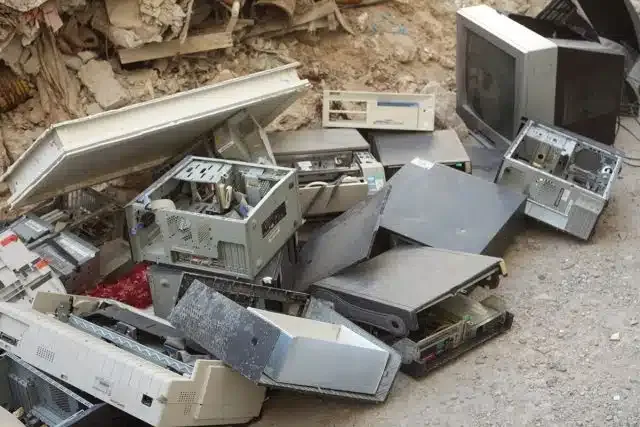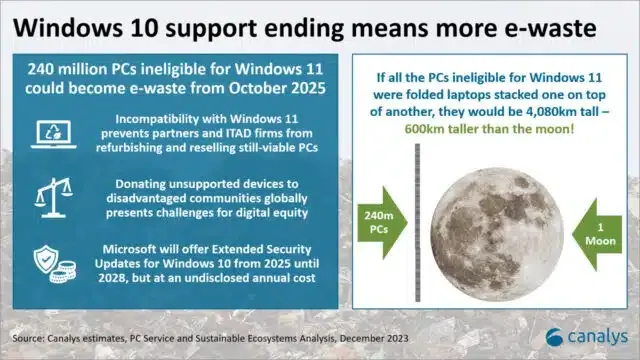Experts say the end of Windows 10 support could turn 240 million PCs into e-waste
-

The upcoming end of Windows 10 support may lead to hundreds of millions of devices becoming obsolete, potentially contributing significantly to electronic waste. The industry predicts that the end of Windows 10 support in 2024 will affect customers’ refresh plans, with one in three devices expected to be replaced in the next two years.Despite the growing capabilities of partners to refurbish and resell PCs, devices not supported by Windows 11 will not be viable for reuse, exacerbating the industry’s e-waste problem.
Market research firm Canalys predicts an 8 percent growth in the PC market by 2024, spurred by customers upgrading their pandemic-era PCs and the emergence of new AI-capable devices. However, the hardware requirements of Windows 11 may prevent many in-use devices from being refurbished for a second life.
Canalys estimates that around 240 million PCs will become e-waste when Windows 10 support ends in October 2025. Most of these devices, if in good condition, could be recycled, but their incompatibility with Windows 11 significantly reduces their value for refurbishment and resale.
While these PCs could still be usable for years, demand for devices no longer supported by Microsoft will be minimal, even among companies with tight IT budgets. Moreover, donating these devices to disadvantaged communities is not a viable or socially sustainable solution to bridging the digital divide.
In response to these concerns, Microsoft has announced that Extended Security Updates for Windows 10 will be available until October 2028, albeit for an unspecified annual fee. However, the cost of these updates may deter many users, pushing them to migrate to newer, Windows 11-capable PCs.
The e-waste implications of the end of Windows 10 support highlight the responsibility of device and operating system vendors to maximize the lifespan of their products. To support a circular economy, vendors must ensure their devices are durable, repairable, and recyclable, and remain usable and secure for as long as possible. However, without regulations to drive this change in the PC market, cross-industry collaboration may be the only solution to the technology sector’s persistent e-waste problem.

